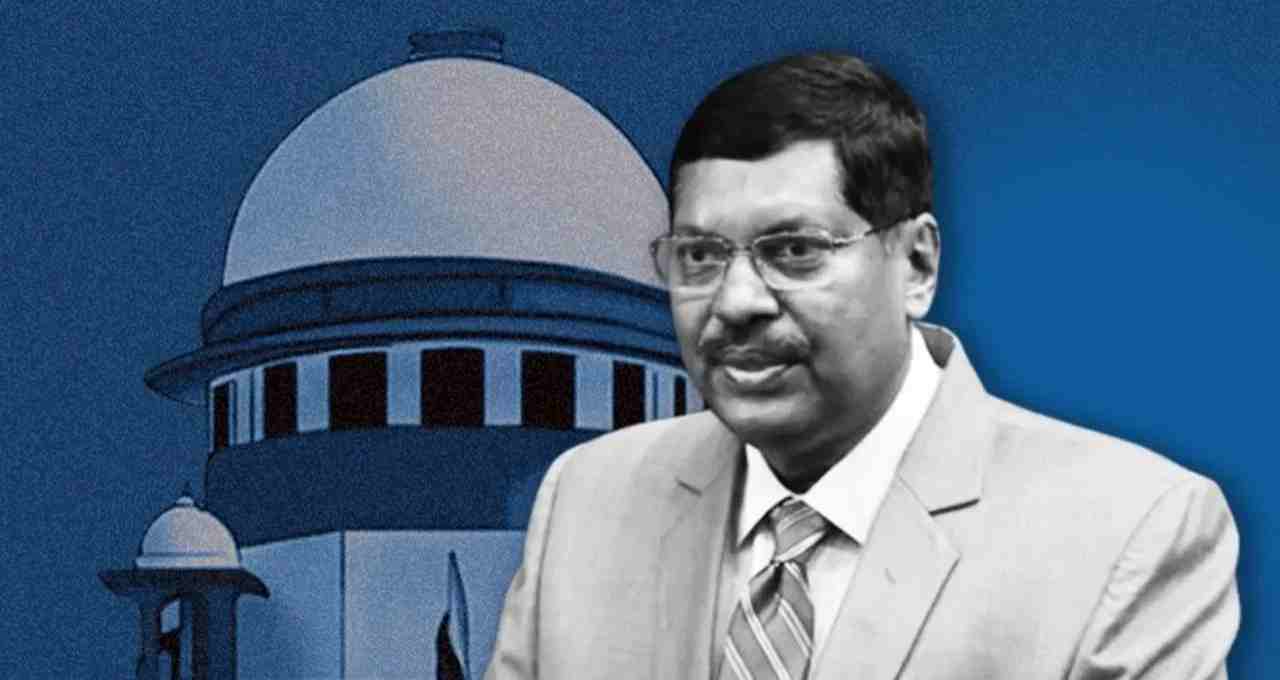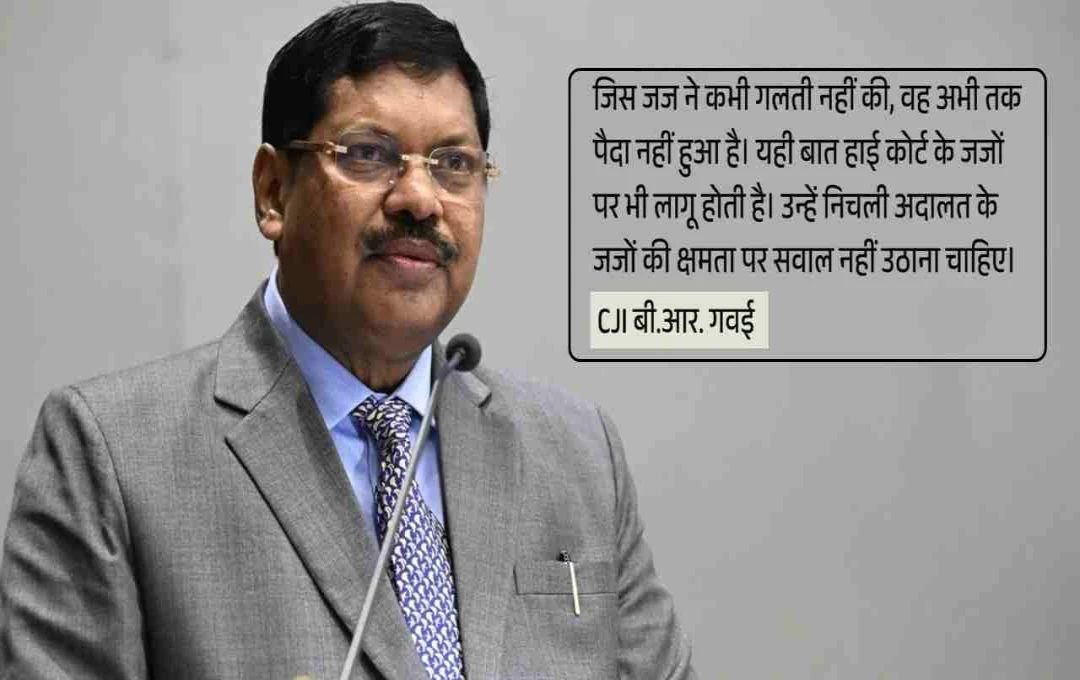Chief Justice of India (CJI) B. R. Gavai and Justice Surya Kant have deemed the tendency to comment on lower court judges as inappropriate. They state that the responsibility of the Supreme Court and High Courts is solely to correct, modify, or overturn erroneous orders.
New Delhi: In a significant message to the judicial system, Chief Justice of India (CJI) B.R. Gavai and Justice Surya Kant have stated that High Courts should guide and train lower court judges instead of commenting on their abilities. They maintain that under the constitutional framework, both High Courts and the Supreme Court are courts of equal standing, and publicly commenting on a judge's competence is not appropriate.
Emphasis on Correction and Training, Not Commentary
CJI Gavai clearly stated that the Constitution does not grant High Courts the authority to comment on the competence of lower court judges. He said that High Courts only have the power to correct, modify, or overturn orders. He added, "The judge who has never made a mistake has not yet been born."
Justice Surya Kant concurred, stating that High Court judges should act as friends, philosophers, and guides for lower courts. According to him, in a three-tiered justice system, explaining and guiding yields better results than criticizing.
Background of Recent Controversy

This comment came after a Supreme Court bench recently criticized an order by a judge of the Allahabad High Court as "worst and patently erroneous." That bench, comprising Justices J.B. Pardiwala and R. Mahadevan, had restrained the judge in question from hearing criminal cases. However, the Supreme Court later withdrew this order and referred the matter to the Chief Justice of the High Court.
Justice Surya Kant clarified that the Supreme Court does not have the authority to decide which type of cases a High Court judge will hear. This authority rests solely with the Chief Justice of the High Court.
High Courts and Supreme Court: Equal Constitutional Status
CJI Gavai emphasized that High Courts are not subordinate to the Supreme Court because both are constitutional courts. The Supreme Court's role is limited to altering, overturning, or modifying High Court orders. He said that the Chief Justices of the High Courts should ensure that lower court judges receive proper training from time to time, so they can update their legal knowledge and maintain professional conduct in court.
Justice Surya Kant, who will succeed CJI Gavai as Chief Justice on November 24th, said that High Court judges and judicial officers in lower courts come from different social backgrounds and have diverse life experiences. These experiences, when combined with appropriate legal training, can further enhance the effectiveness of the justice system. He said that the Supreme Court should guide High Courts through its judgments, not interfere in their roster.
The Role of the Supreme Court: Guidance, Not Interference
Justice Surya Kant said that judicial officers, regardless of their level, contribute to the judicial process through their experience and training. Therefore, the apex court should guide the lower courts and High Courts through decisions and interpretations, rather than directly intervening in their jurisdiction.
CJI Gavai also said that High Court judges should maintain decency and balance while issuing orders and writing judgments, so that public trust in the justice system is maintained.











